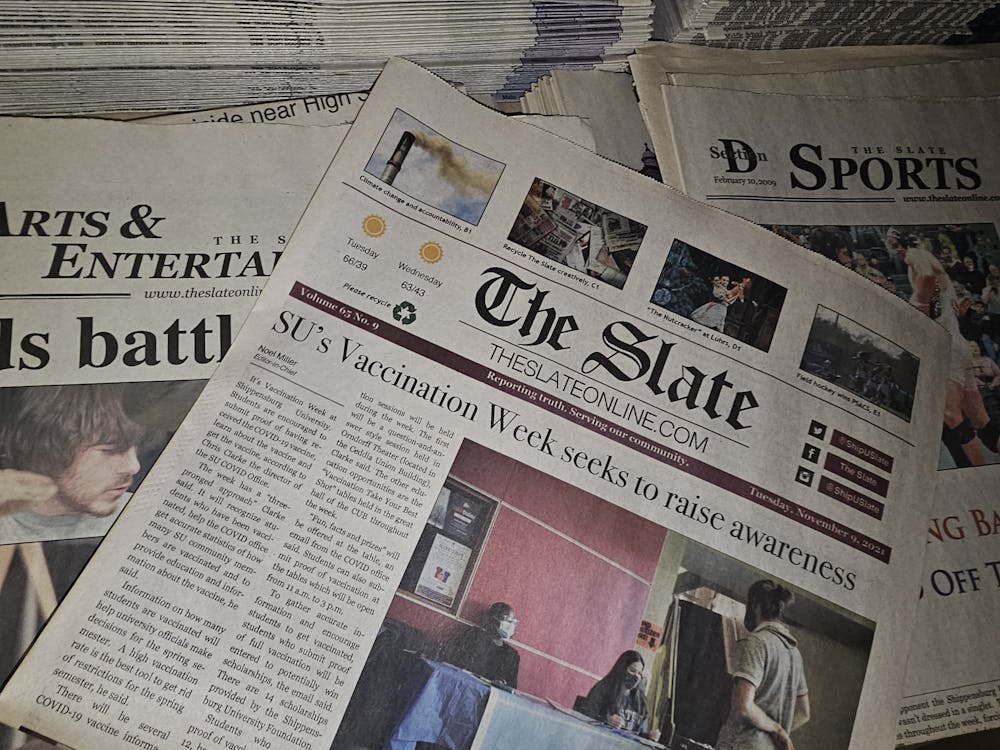Politics and media have always coexisted in unique ways. During a time where constant media evolution is prevalent, misinformation and disinformation are spread daily due to differing beliefs, controversial topics and failure to digest facts.
According to Gallup’s Yearly Institutional Trust Poll, roughly 70% of Americans expressed little to no trust in the media, as of Oct. 14, 2024. Additionally, national newspapers had mixed opinions about endorsing a presidential candidate in 2024, with The Washington Post and Los Angeles Times choosing not to endorse a candidate, whereas The New York Times and The Washington Times did. This caused a renewed discussion of political bias and distrust in the media.
As student journalists, many of whom aim to work in national media, it is essential to prioritize accuracy – no matter where you land on the political spectrum. Not only do student journalists have a duty to spread factual information, but we also have a duty to consume it. It is crucial to stay educated about global events, as the responsibility lies within journalists’ hands.
If we ourselves are uninformed of what is happening in our communities and across the globe, the general public will suffer.
Whether a journalist or not, we all should become informationally well-rounded and read the news that upsets you. It’s important as lifelong learners to strive to take in as much news about relevant topics as possible. By doing this, it allows you to dissect news headlines that sound too good to be true or misleading and make sense of the overwhelming amount of information available.
If it sounds too good or too outlandish to be true, it probably isn’t.
It’s important to stay updated on ongoing stories, too. Looking for up-to-date information is the best way that we all can stay informed.
Additionally, read beyond the headline. It sounds simple, but it’s true. By letting headlines deter you from reading without actually digging deeper, it’s easy to be fed things. Ideas, thoughts and beliefs can permeate your brain without you even realizing.
In a media environment that so often puts clicks and profits before its readers, do yourself the favor of not getting fooled by a sensationalized headline.
Find context and dig deeper than just your initial emotion. Question things that you are told and fact check. Misinformation and disinformation, as previously mentioned, are rampant today. Any scroll on social media can tell you that, but by looking beyond the shock value, you can learn and understand the full context of whatever it is that you are reading about.
During and especially after the election, it was easy to find safety within an algorithm’s echo chamber. This was fine for a while, but eventually it became crucial to once again be open to opposing viewpoints and unbiased, realistic information.
With misinformation comes fear mongering, and it can be easy to fall into a pit of despair. This is very apparent on TikTok, where creators use scary headlines as introductions to their videos, usually without any real research or cited sources. To avoid things like this, one should be aware of laws, regulations and legal processes.
Essentially, know what political leaders are actually able to do, rather than what they say they will do. An easy way to stay informed is to avoid clickbait-like news altogether and stick to unbiased news websites, or even said news sources’ Instagram accounts. As much as we rely on it, TikTok, unfortunately, is almost never a reliable news source.
Without fact-checking, facts cannot be listed as such. Journalists have, or should have, a priority to give readers’ news that matters and is true.
The future of the media is up to the generation who decides to stop fake news.
Truth is difficult to decipher; however, all of us doing our due diligence is the key to trust in the media.



The Slate welcomes thoughtful discussion on all of our stories, but please keep comments civil and on-topic. Read our full guidelines here.